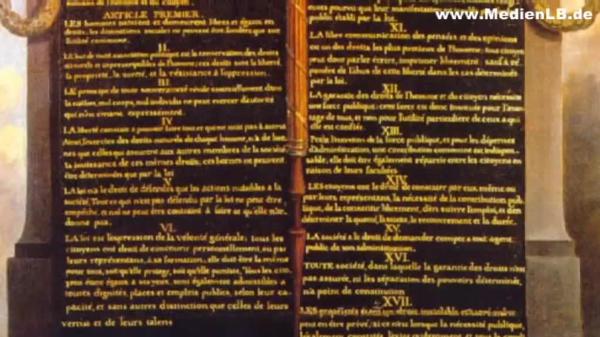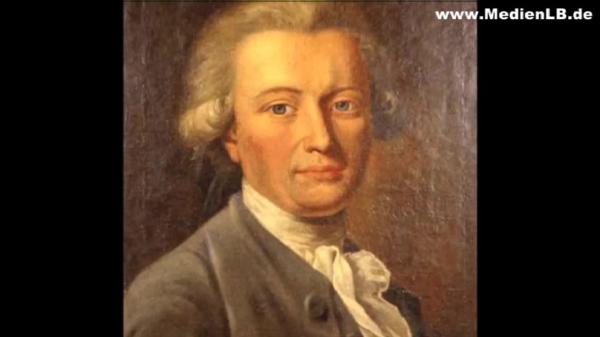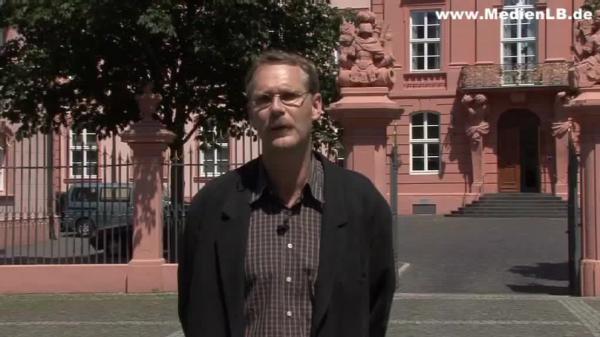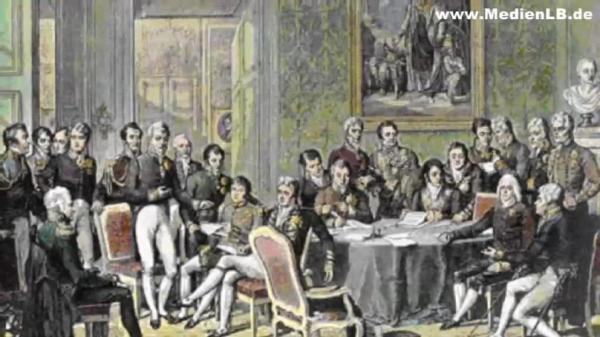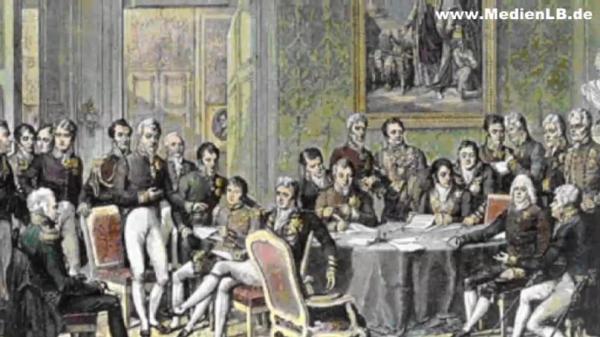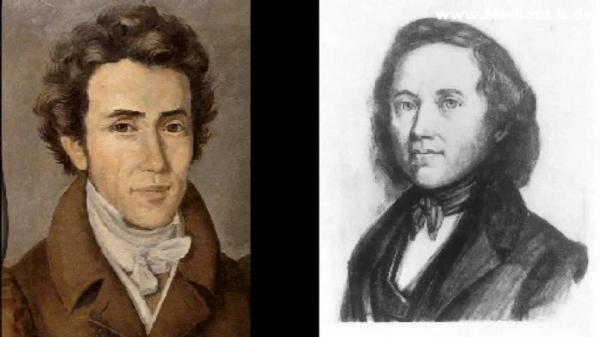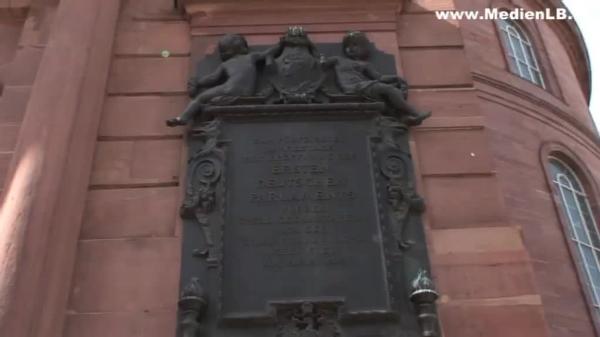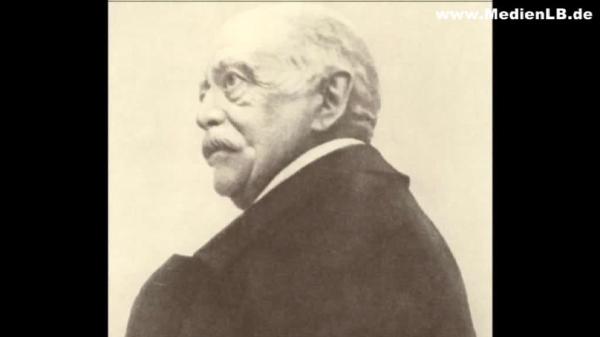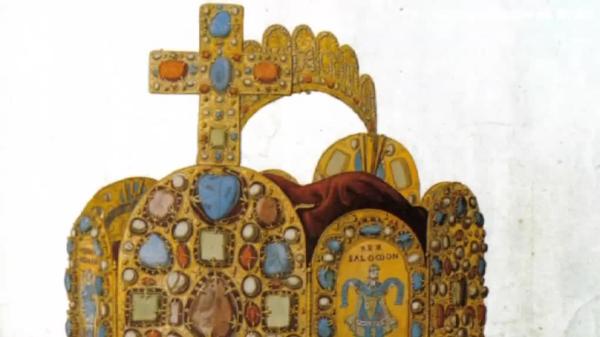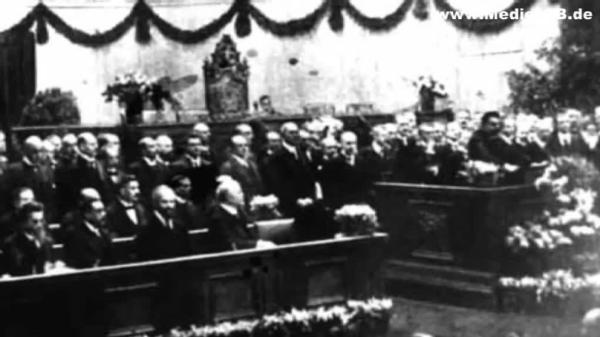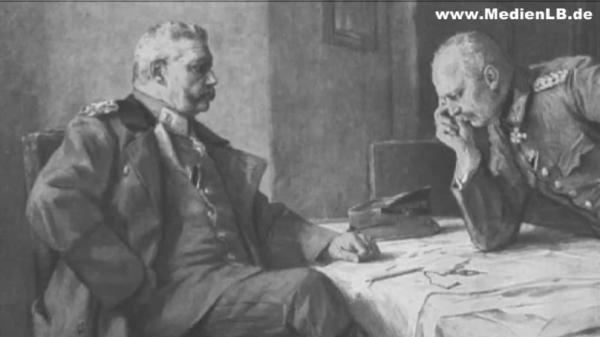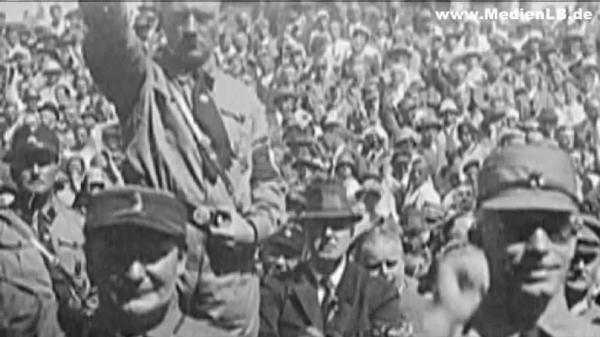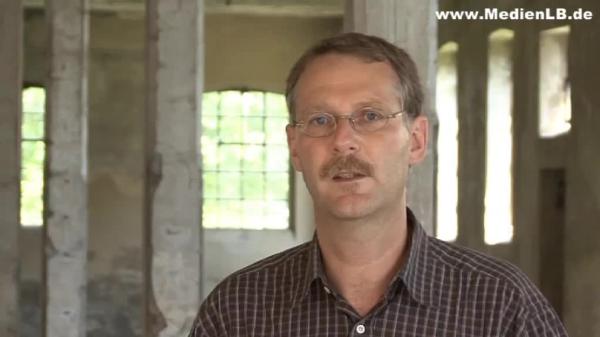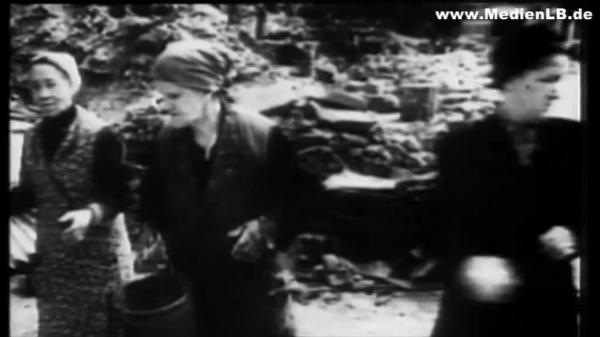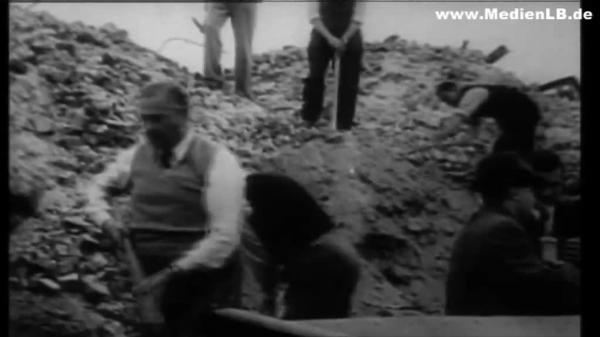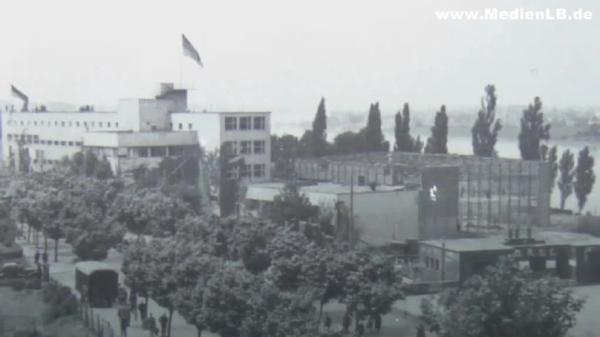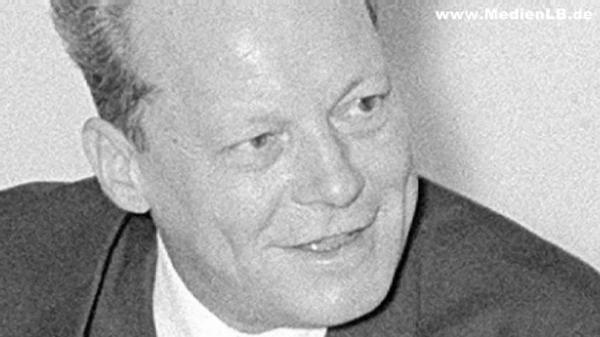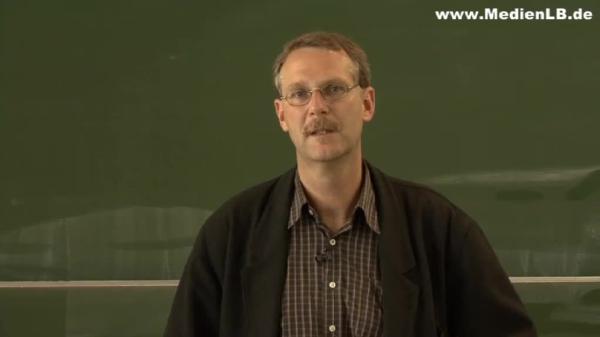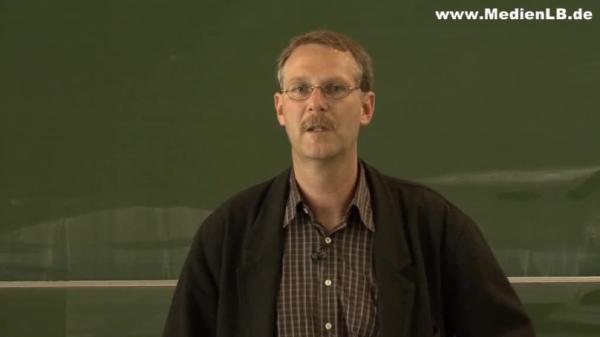Wege zur Demokratie
Vom 19.Jhd. zur Gegenwart

Ways to Democracy

1. The Republic of Mainz 1.1 The Revolution Comes to Germany The electoral palace Mainz was the cradle of democracy in Germany. In autumn 1792 the Society of the Friends of Liberty and Equality met here. As in many other German towns, a Jacobin club was founded in Mainz under the protection of the French troops. Here, the ideas of the French Revolution were discussed and pamphlets were distributed propagating the ideals of “liberty, equality and fraternalism”. The French national convention had promised help and support to all the peoples wanting to regain their freedom. 1.2 The Rhenish-German National Convention Surprisingly for the Jacobines of Mainz many people didn’t really want any of the liberties offered by the French. They emphasized the wealth and prosperity that the elector and the gentry had brought to the town. Only few wanted a republic modelled on the French example, which seemed unfamiliar and frightening to them. The librarian of Mainz, Georg Forster, one of the leading Jacobines was convinced that the people would have to have liberty forced onto them by all means if necessary. Under these conditions, in 1793, the election of the Rhenish-German national convention took place at the Deutschhaus Mainz, which today is the seat of the Rhenish-Palatinate parliament. Eligible to vote were only those men who had previously taken an oath to the principles of liberty, equality and the sovereignty of the people. Those who refused to take this oath were barred from the election and treated as enemies of France. Thus the turnout of voters was rather low: only 8% cast their votes. On March 17th 1793 130 elected representatives from 125 towns convened at the Deutschhaus Mainz. This was the first German parliament that displayed basic principles of modern democracy. 1.3 The End of the Republic of Mainz O-Ton Dr. Ralph Erbar: “The convention abrogated the privileges of the gentry and the clergy and seized their property. Already during the first session the free Rhenish-German state was proclaimed which was to be independent of the empire. In March 1793 a union with France – also called the reunion – was decided on. Georg Forster delivered the Mainz offer for reunion to the French national convention. The latter accepted and thus the Republic of Mainz temporarily belonged to France.” But even as Forster was in Paris, Mainz was besieged by the Prussian and Austrian troops until it was reconquered in July 1793. Lynchings of the Mainz Jacobines were committed by the people (bourgeois). Georg Forster had to stay in Paris where he died desolate and alone a year later. Today only a street name in Mainz, but no memorial commemorates him. The republic of Mainz lasted only a short time, its ideas however survived. Although its significance is disputed by historians, it went down as the first German democracy in history. 2. The Pre-March Era and Revolution of 1848/49 2.1 Pre-March Era Such black-red-golden flags as can still be seen today in the Rhineland-Palatinate parliament, first emerge during the war of liberation from the reign of Napoleon. They were spread in particular by students belonging to a fraternity. Between the years 1814 and 1815 the Austrian chancellor of state Metternich initiated a meeting of the Congress of Vienna to restructure Europe. Quite a few hoped for a democratic state of German nations. These hopes however were shattered by the refusal of the conservative sovereigns who resisted any new ideas. They wanted to restore conditions as they had been before the beginning of the French revolution. This era, also called the restoration lasted from 1815 until the revolution which began in March 1848. This is why it’s also called the Pre-March Era. In October 1817 more than 500 students from all over Germany congregate at the Wartburg in Thuringia to again call for a united German fatherland. This brought about a reaction from Metternich. The murder of the conservative writer Augus von Kotzebue by the studen Carl Ludwig Sand prompted him to restore law and order. Fraternities were banned, critical professors and students were watched and pamphlets censored. The nationalist movement was smashed – at least for the time being. 2.2 The Hambacher Fest of 1832 O-Ton Dr. Ralph Erbar “The claims for a liberal constitutional state however don’t stop. In May 1832 up to 30,000 people – even coming from France and Poland – congregate here at the remains of the Hambach castle in Bavarian Palatinate gathered for a big celebration. They carry black-red-golden flags and sing patriotic hymns. The main speakers, Philipp Jakob Siebenpfeiffer and Johann Georg August Wirth, demand a democratic nation state, freedom for the people and a liberal constitution. The conservative governments however suppress these claims again: Censorship is tightened, Siebenpfeiffer and Wirth have to emigrate abroad.” 2.3 The Revolution of 1848/49 The long suppressed calls for a liberal constitution eventually lead to the outbreak of a revolution in Germany and Austria in 1848. While demonstrators and soldiers engaged in bloody riots, a national assembly gathers here at the St. Paul’s church in Frankfurt in May 1848 to draw up a constitution for a reorganised Germany. At the beginning of 1849 the constitution was completed; it envisioned Germany as a constitutional monarchy with an emperor as head of state and included basic civil rights for the first time in German history. Yet the Prussian King Friedrich Wilhelm IV turned down the imperial crown offered to him. The revolution was defeated by the military and the constitution of 1849 never came into effect. 3. From Empire to the Republic of Weimar 3.1 The Unfinished Constitutional State The proclamation of the German empire at the Hall of Mirrors of Versailles on January 18th 1871 finally lead to a German nation state. In large parts responsible for this was the Prussian premier Otto von Bismarck. Yet while in 1848 the aim had been to found a national democratic constitutional state, the empire of 1871 turned out to be a monarchic authoritarian nationa state which disappointed quite a few. Civil rights were not to be found in the constitution of 1871. The poet Georg Herwegh wrote about the new Germany: “I fear you, I almost believe that you have succumbed to madness [...] and that you, self-righeously have forgotten about the human rights.” Instead of the black, red and gold it was the colours of Prussia – black and white as well as the red of the free cities that triumphed. Bismarck didn’t believe in representatives of the people, the parliament to which the Constitution of 1871 had given only few rights, he called a talking shop and he watched the political parties suspiciously. He was particularly distrustful of the social democrats and their evergrowing following. Their ideas he takes as evidence that a state under sovereignty of the people and with constitutional rights could never last for long. From 1878 onwards Bismarck had the social democrats prosecuted using the so called socialists’ law. Thus the German Empire of 1871 remained an undemocratic and incomplete constitutional state. 3.2 Republic without Republicans On November 9th 1918 the monarchie in Germany came to an end. The abdication of the Emperor Wilhelm II was proclaimed and Germany was pronounced a republic. It was the defeat in the 1st World War which finally gave Germany a chance to establish a democratic system. Inexperienced yet highly optimistic the founding fathers of the republic set about their plans. In Weimar they drew up an new constitution. For the first time in German history there was to be an elected head of state, the Reich president, an operative division of powers and the realisation of the sovereignty of the people. Women were also given the right to vote, which they had long been calling for. The national and liberal demands had finally been met. O-Ton Dr. Ralph Erbar From the beginning the Weimar Republic was exposed to many pressures. There were the many millions of returning soldiers who had to be provided for, the rather harsh conditions of the treaty of Versailles of 1919 which blamed the Germans for the outbreak of the war. This resulted in loss of territories, military occupation, the surrendering of weapons as well as reparations of unspecified amounts. Many Germans blamed the unfamiliar and increasingly unpopular Weimar system for these incisive changes. For many the change from monarchy to democracy had come too quickly. Many spoke of a republic without republicans.” In addition to that the Weimar constitution was quite liberal. Due to its previous experiences with an authoritarian monarchy, it grants liberties even to its declared enemies, the basic civil rights remain unprotected. Extremist parties can evolve without restraint. 4. National Socialism 4.1 Establishing the Dictatorship As the effects of the global economic crisis hit Germany in 1929/30 and millions of people lose their jobs, the end of the Weimar Republic is near. The democratic parties lose their majorities, from 1930 until 1933 Germany is ruled by presidential cabinets which were dependent of the Reich president. At the same time the communists and the national socialists became increasingly popular. On January 30th 1933 the Reich President von Hindenburg appointed the leader of the NSDAP, Adolf Hitler as Chancellor of Germany. Thus the attempt to establish the first democracy in Germany had failed. Hitler quickly implemented what he had already announced in his book “Mein Kampf” years previously: The Berlin Reichstag fire on February 27th 1933 was immediately taken advantage of by the national socialists. The Reichstag Fire decree of February 28th nullified many of the key civil rights until 1945. These included the freedom of press and freedom of speech. Actual and suspected opponents of the national socialists, in particular communists and democrats were arrested without a court order and taken to the first concentration camps such as this one in Osthofen near Worms. The aim was to intimidate the people. At that time the reign of the National Socialists was not yet affirmed. Not until the majority of the Berlin parliament passed the Enabling Act of March 24th 1933 Hitler was given the right to pass laws without the participation of the Reichstag. Thus parliament participation was abolished completely and the way to dictatorship had been paved. Democratic parties were either banned or disbanded. The judiciary was also forced into line. The division of powers was abolished, the establishment of dictatorship in Germany complete. The Hitler Youth served to train and prepare children and adolescents for the coming war. 4.2 On the Way to War O-Ton Dr. Ralph Erbar As soon as the remnants of the democratic system of Weimar were eliminated, the national socialists set about preparing the entire country for a war of conquest in Eastern Europe. The work of the SS and the Gestapo was made easier by the fact that people started denouncing each other. Especially the Jews were harassed and had their rights taken away from them as they were considered a danger to the Aryan race. To begin with they had more and more rights taken away from them. The Nuremberg laws proclaimed them to be second-class citizens.” The first climax of these developments was reached in the November pogroms 1938. Open violence erupted: all over Germany synagogues were burnt down, jewish shops and homes were destroyed. From then on thousands of jewish citizens were taken to concentration camps. As the war progressed most European Jews were killed in large extermination camps such as Auschwitz. In less than 10 years Germany had turned from democratic republic into one of the most horrific terror regimes of the 20th century. 5. Democracy after 1945 5.1 Reeducation By the end of World War II Germany was largely destroyed. The victorious powers divided the country into four occupation zones. The old ideological differences of the allies reemerge quickly; in their own zone each cut their own path e. g. regarding the denazification. In the three western zones Germany had a programme for democratisation imposed on it. The term “reeducation” points to a reconnection to the Weimar Republic. The population was to be educated in democracy with help from the allies. In contrast to that the former USSR established a people’s democracy based on socialist ideology in the eastern zone. Thus two entirely different, even conflicting democracies develop in West and East Germany. 5.2 Two German States In 1949 two new German states were founded: The three western occupation zones merged to form the Federal Republic of Germany. The eastern zone became the German Democratic Republic. For the next 40 years the two German states were continously competing with each other. Which political and economic system would prove to be superior? The west tried to learn from the mistakes of the Weimar constitution and the crimes of the Nazi regime. The first chapter of the constitution specifically safeguards the civil rights. Extremist parties are watched and if necessary banned. An election threshold of 5% prevents a fragmentation of the Bundestag (federal parliament). The development of an awareness of democracy was helped by the extensive economical aid granted by the American Marshall plan. The GDR also had a constitution with civil liberties. The individual however was not allowed to make demands of the state or society. The individual had to submit to the leadership of the Socialist Unity Party of Germany. Dissenting behaviour would entail various forms of social exclusion and punishment. 5.3 "Courage for more Democracy" O-Ton Dr. Ralph Erbar In the 1960s the democratisation of west German society came to a halt. Therefore students and pupils called for a facing up to the Nazi past, more liberal behaviour and more active participation in political decisions. From 1968 onwards the Federal Republic of Germany underwent something of a surge in democratisation. “Let’s dare more democracy” is how the chancellor Willy Brandt began his government policy statement in 1969. The right to participation were expanded in many areas such as work places, schools and universities, the age of consent was lowered to 18. New civil movements for disarmament, peace and environmentalism emerged.” In contrast to that the SED regime of the GDR continued to suppress all efforts of democratisation as seen in the West. Even Mikhail Gorbachev’s manifestos of Glasnost and Perestroika in the USSR in the early 1980s found no approval initially. Thus the rigid clinging to the socialist ideas contributed to the demise of the GDR. 6. Democracy Today 6.1 Democracy – a Model for Success? O-Ton Dr. Ralph Erbar “Now, around 60 years after the founding of the Federal Republic of Germany the political system of democracy is considered successful. The Germans, albeit late, seem to have become good democrats with a healthy awareness of their country. The rules of democracy are largely accepted today. Elections at all levels of society at regular intervals are to ensure the participation of the people. Yet, is the democracy really not in danger?” 6.2 Where to Learn Democracy The ground rules of democracy have to be explained and practised as early as possible. Good places for this are children’s nurseries, specific events held by youth workers and of course schools. Here children learn about the advantages and also the problems of the often protracted demoratic decision making. A premise for this is that headmasters and teachers allow their pupils the time and space they need. 6.3 Dangers to Democracy Right- and leftwing detractors as well as religious fundamentalist groups continuously try to eradicate the basic principles of our country by force – without being able to offer a better solution. They also particularly try to influence children and adolescents. The medium used especially by rightwing extremists is music that glorifies violence which has been spreading fast in recent times. Songs with xenophobic and sometimes also antisemitic lyrics can be found on the internet, are burnt onto cd and distributed in schoolyards. Simple slogans are used to stoke fears and prejudice fuels hatred against minorities. O-Ton Dr. Ralph Erbar One of the dangers to democracy – possibly the greatest danger of all – lies in ourselves. A decrease in confidence in and a growing distrust of politicians, a disenchantment with politics in general and the ensuing decrease in voter participation at elections in the last few years point to a weariness of democracy. What had once been fought for many now take for granted and therefore not worthy of consideration. However that is not so. For a democracy that loses support from its centre gives power to its enemies at its fringes.” A living democracy needs watchful democrats who are willing to stand up for the preservation of their community. This takes time and patience and doesn’t always lead to success – but it’s still worthwile! Democracy must not be taken for granted and neglected, on the contrary: it is our duty to continously safeguard it – for each of us.



